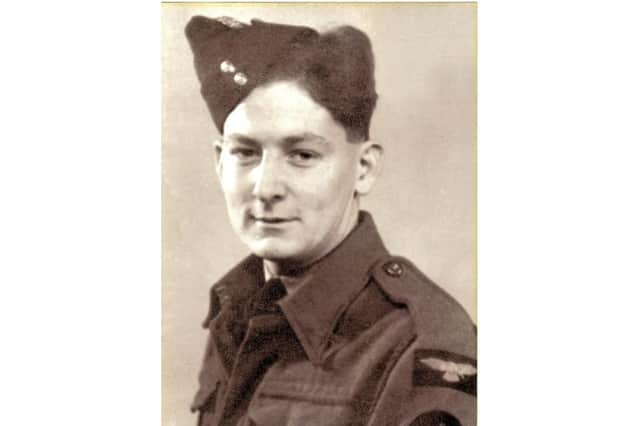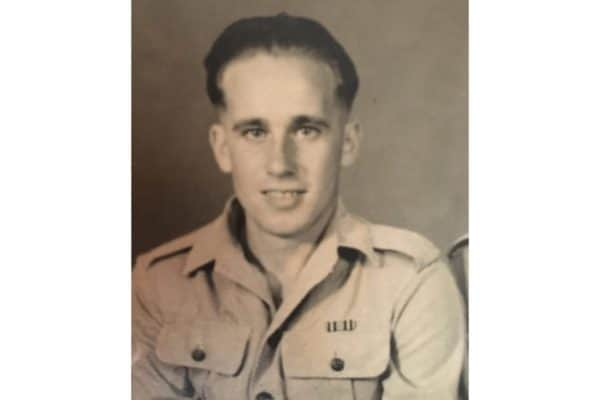'It wasn’t excitement, it was just sheer emotion': sharing the untold stories of the British, Allied and Commonwealth forces who served in the Far East


This article contains affiliate links. We may earn a small commission on items purchased through this article, but that does not affect our editorial judgement.
As we mark the 75th anniversary of VJ Day, The Royal British Legion is shining a spotlight on the untold stories of British, Allied and Commonwealth forces who served in the Far East and is encouraging the public to remember and recognise all those who served and sacrificed in the conflict and ultimately brought an end to the Second World War.
Jim Kemp
At just 18 years old, Jim Kemp was conscripted to the Army and left his family home in Cambridgeshire to join the Essex Regiment.
Advertisement
Hide AdAdvertisement
Hide AdOne of three children, having two older sisters, Jim began his training at Bury St Edmunds and felt excited about the prospect of travelling and was sent out to Burma as an infantry soldier with the 26th Indian Division after just six weeks.
Jim’s jungle training prepared him for patrols in blazing heat and monsoon weather, not conditions he was used to. Yet he adapted to his surroundings quickly, conducting combined operations in air, on water and on the ground.
As one of the first units to land in Rangoon, Jim first saw action on Ramree Island in early 1945 and further into the year was then part of Operation Dracula, the Battle to take back Rangoon, and was part of the invasion in May 1945. It was during this operation that he heard about the end of the war in Europe - though it was four days after VE Day that the news finally reached them.


Jim said, “It was an unseen part of the war, we had a job and got on doing it. We had no idea what was going on in Europe and when we did hear the news about VE Day we hoped we would be able to come home, but that wasn’t to be until a long time after.
Advertisement
Hide AdAdvertisement
Hide Ad“We witnessed horrendous sights out there, but my service was my job and we got used to things quickly.”
Jim also witnessed the sound of the atomic bomb which had dropped on Hiroshima, Japan from where he was stationed. He said, “I saw the tip of the cloud but at the time we had no idea what was going on, we just got on with it.”
Jim was demobbed in 1947 and was married to his wife in 1952 for 52 years before she passed away. Jim is a father to two sons, a grandfather and great grandfather. He is a member of the Burma Star Association and the Royal British Legion branch in his local area.
Richard Llewellyn
Richard Llewellyn, 94, from Wirral was a midshipman in the British Navy during World War Two.
Advertisement
Hide AdAdvertisement
Hide AdHe was just 18 when the Allies invaded Normandy during the D-Day landings, and he was later destined to head for the Far East before the United States detonated two atomic bombs over the Japanese cities of Horoshima and Nagasaki in August 1945, effectively ending the Second World War with the surrender of Imperial Japan.
Recalling that time, Richard said, “I was Navigating Officer on HMS Easton, which was refitted at Chatham dockyard in preparation for the Far East, because the war was still going on there – we were an expendable destroyer, so we were on our way there when the first of the nuclear bombs was dropped, which effectively ended the war.“Whilst many people said they should never have been dropped, personally we were very grateful for the fact that it happened because the war in the Far East was a very bitter conflict, so we weren’t unhappy to be turned around. It’s an opinion that has got me into a few heated discussions down the years, but that was my feeling.“The Japanese had already said they were determined to hang on until their last man, so it was a fairly bloody fight out there, and I wasn’t particularly anxious to get there, although obviously I would’ve gone and done my duty.“Overall, the war was an exciting time for me, I never considered that I was likely not to be hit by a bomb or anything. We liberated Europe and for those of us who survived, I feel very lucky, and the sea has been my life.”Richard was demobbed in 1946. He now lives in Greasby, Wirral, with his partner of 25 years Elly Gibbs.